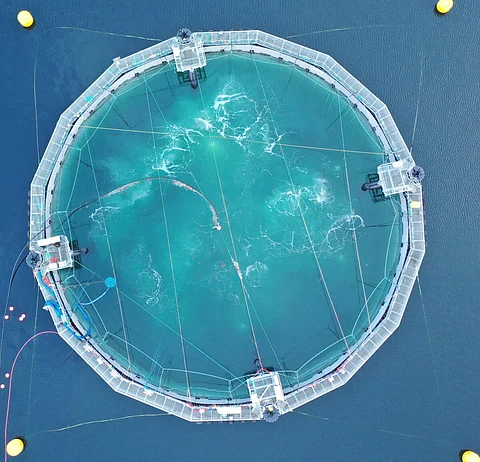

Early last week, Cermaq Canada announced the installation of the new equipment for the second trial of their semi-closed containment system (SCCS) had been completed. If all goes according to plan, the fish will enter the system in mid-October. Before that time, the company will conduct equipment testing and the training of their "highly skilled" employees. "We feel this technology definitely has a place in our operations in British Columbia", Cermaq Canada has told WeAreAquaculture.
This is the second test Cermaq Canada has conducted in British Columbia with an SCCS. "We took time since concluding the first trial to refine and improve upon version one of the system and are excited to be embarking on this latest trial", they stated to WeAreAquaculture. "We learned that innovation takes time and an openness to learn from challenges as they present themselves. We feel this technology definitely has a place in our operations in British Columbia", they added.
As with the first test, this second trial is taking place in Millar Channel, in Ahousaht territory. In about two weeks, fish of approximately 90 g from the freshwater hatchery will be introduced into the SCCS. The trial is scheduled to last until spring/summer next year.
Last summer, the Government of Canada announced a plan to transition from open-net pen salmon farming, "in order to advance innovation and support the ecological sustainability of the aquaculture sector in British Columbia". At that moment, the Department of Fisheries and Oceans of Canada (DFO) talked about "alternative production methods that minimize or eliminate interactions between farmed and wild salmon". In practice, this would mean the use of closed or semi-closed net pen systems.
"This system creates a barrier which minimizes the interaction between wild and farmed fish", summarized Cermaq Canada in the announcement of this second trial. In a slightly expanded explanation, a report from the BC Salmon Farmers Association (BCSFA) described it by saying that SCCS technology separates farmed fish from the ocean environment by surrounding the traditional salmon farming net system with an impermeable barrier. This prevents sea lice and harmful plankton from entering the pen. "Semi-closed systems provide increased biosecurity and welfare for both farm-raised and wild salmon – and are a first step towards the development of in-water closed containment farming technology", they pointed out from BCSFA.
